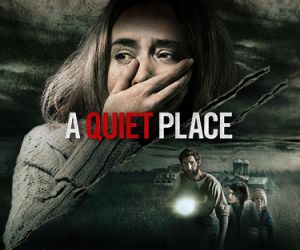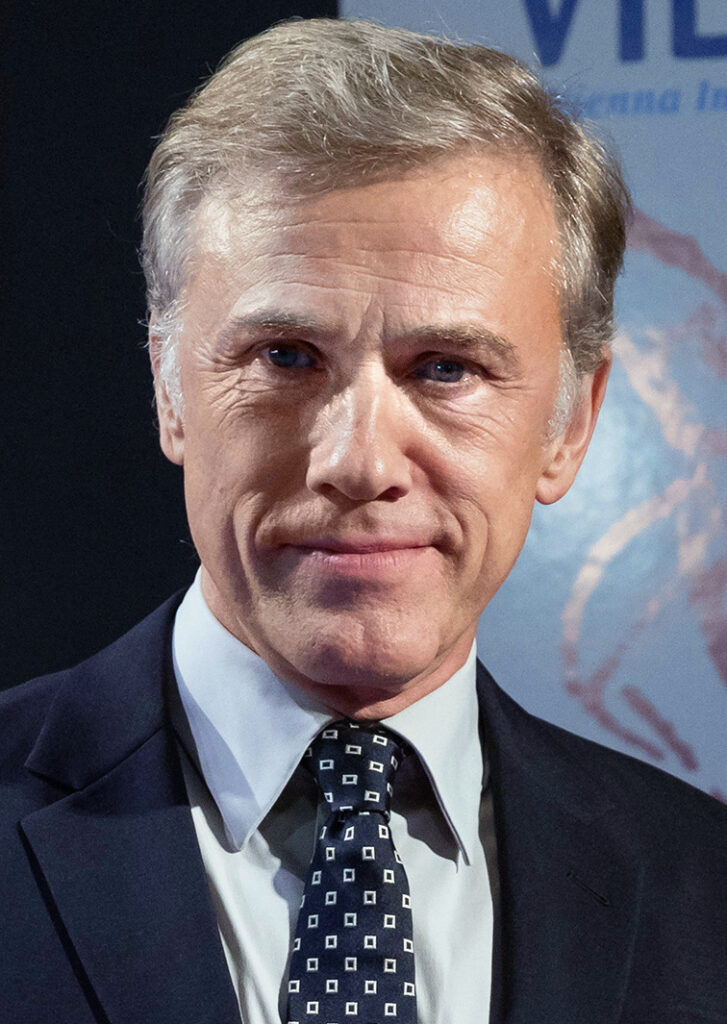
Christoph Waltz, born on October 4, 1956, in Vienna, Austria, has emerged as one of the most compelling and versatile actors of his generation. His distinctive ability to inhabit complex characters, often with a gleefully arch comic timing or a chilling menace, has captivated global audiences and solidified his place in cinematic history. This article undertakes an in-depth exploration of Waltz’s remarkable career, from his artistic origins in Europe to his profound impact on Hollywood and beyond.
From the outset, Waltz appeared to be charting a course toward a life steeped in the theatrical arts. Born into a family deeply embedded in the creative world, with parents working as set and costume designers and several grandparents having been actors, his destiny seemed intertwined with performance. This rich artistic heritage undoubtedly provided a fertile ground for his inherent talents to blossom, guiding him towards formal training that would shape his prodigious abilities.
Yet, for many years, his career remained a testament to prolificacy rather than international recognition, primarily unfolding across European stages and television screens. While financially rewarding, this period was, by Waltz’s own account, creatively unfulfilling. It was a journey of diligent work and artistic growth, however, that ultimately prepared him for the pivotal role that would redefine his trajectory and introduce his extraordinary gifts to a worldwide audience.
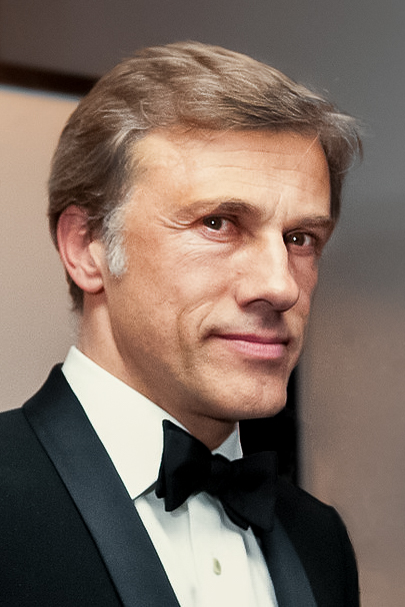
1. **Early Life and Artistic Roots**: Born in the historic and culturally rich city of Vienna, Austria, on October 4, 1956, Christoph Waltz’s connection to the performing arts was virtually predestined. His lineage was deeply intertwined with the world of theater; both his parents worked as set and costume designers, providing him with an intimate early exposure to the mechanics and artistry of stagecraft. Furthermore, several of his grandparents were esteemed actors, creating a familial legacy that surely influenced his early inclinations.
This immersion in an artistic environment from a young age provided Waltz with a unique foundation. It cultivated an innate understanding and appreciation for storytelling, character development, and the transformative power of performance. Such a background not only instilled a passion for the arts but also offered a practical education in the industry long before his formal studies began, shaping his future endeavors.
To hone his natural talents and profound familial inheritance, Waltz pursued rigorous formal education in acting. He undertook studies at the prestigious Max Reinhardt Seminar of the University of Music and Dramatic Art in Vienna, a renowned institution for dramatic training. Later, he further refined his craft at the Lee Strasberg Theatre and Film Institute in New York City, immersing himself in methods that emphasized deep emotional recall and authentic character portrayal. These foundational experiences laid the groundwork for the versatile and nuanced performances that would eventually define his career.
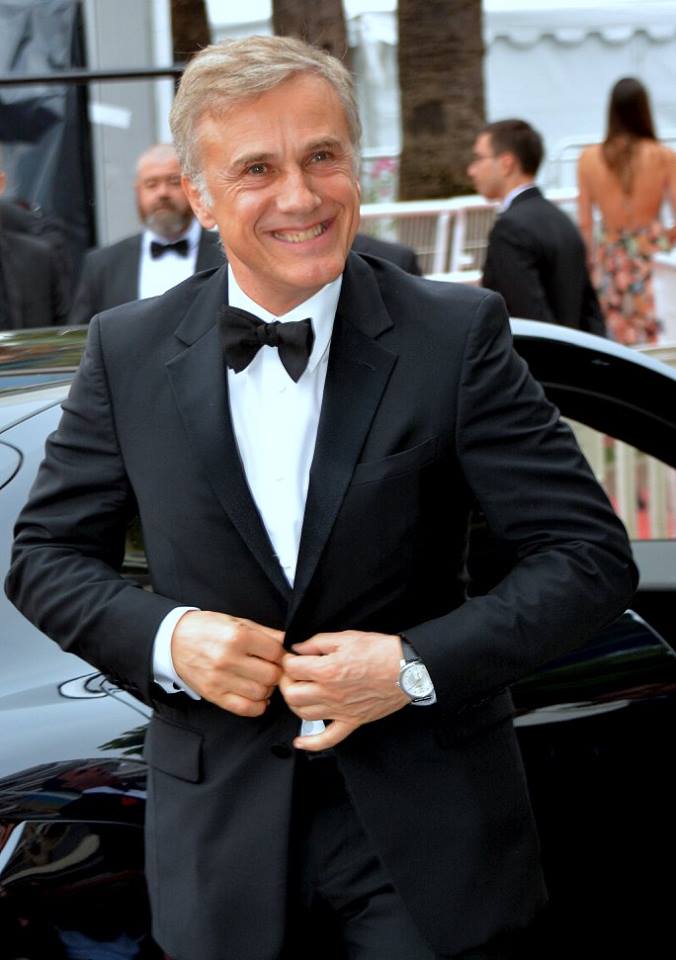
2. **Prolific European Career: Stage and Television**: Following his extensive training, Christoph Waltz embarked on what would become an astonishingly prolific, albeit initially low-key, career across Europe. His professional journey began in the late 1970s, making appearances in Austrian television movies and a West German TV series. These early roles marked his transition from student to working actor, establishing him as a consistent presence in the German-speaking entertainment landscape.
Throughout the 1980s and 2000s, Waltz became a familiar face and voice across European film and television. He regularly performed on stage, gracing productions in prominent cultural centers such as Vienna, Salzburg, Cologne, and Hamburg, demonstrating his commitment to live theater. His work during this period also extended to British television, notably playing Dr. Hans-Joachim Dorfmann in the 1990 British TV series, “The Gravy Train,” a production set against the backdrop of intrigue within the offices of the European Union in Brussels, where he starred opposite Ian Richardson.
Beyond his acting roles, Waltz also contributed his distinctive vocal talents to other projects. In 2007, just two years before his career-altering breakthrough, he narrated the audiobook for the German version of Robert Sapolsky’s “A Primate’s Memoir,” titled “Mein Leben als Pavian.” This showcased his versatility and willingness to engage with diverse artistic mediums, even as he navigated what he candidly described as a financially rewarding but “creatively unfulfilling” period in his career.
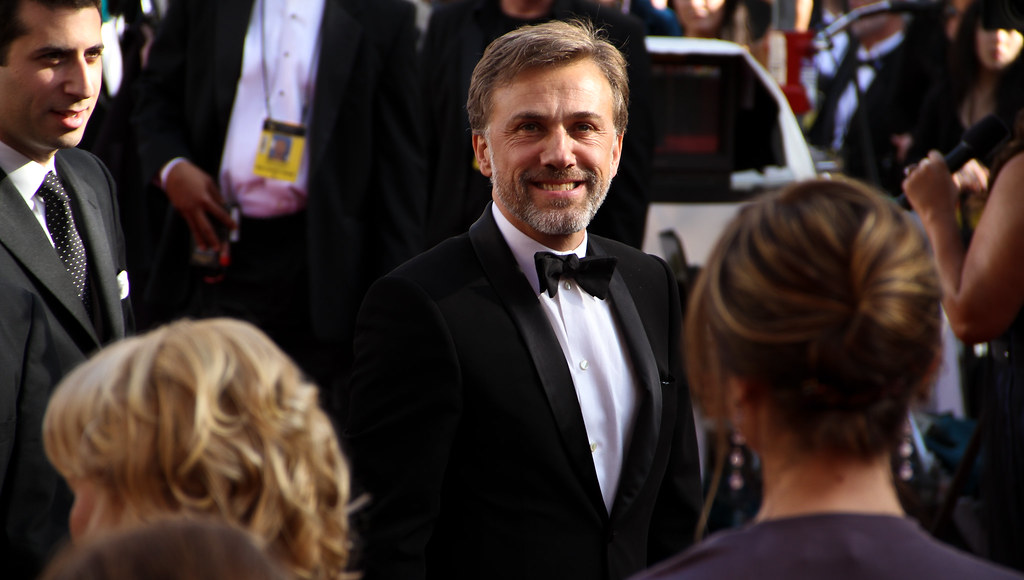
3. **Directorial Endeavors on German Television**: Even amidst his extensive acting career, Christoph Waltz demonstrated an early ambition to explore the creative process from behind the camera. In 2000, he made his directorial debut with the German television production “Wenn man sich traut.” This venture offered him an opportunity to exert greater creative control over a project, moving beyond the interpretation of characters to the overall shaping of a narrative.
This early directorial effort was significant, providing Waltz with invaluable experience in the intricacies of filmmaking, from conceptualization to execution. It signaled a multifaceted artistic curiosity that extended beyond performance, suggesting a desire to understand and influence the entire storytelling arc. Such an undertaking highlighted his commitment to the broader cinematic and theatrical arts, rather than solely focusing on his role as an actor.
This initial foray into directing on German television foreshadowed his later, more prominent forays into helming productions. It provided a foundational understanding that would serve him well when he later took on the ambitious task of directing opera productions, such as “Der Rosenkavalier” and “Falstaff,” and eventually his own feature film, “Georgetown.” These early experiences underscored his comprehensive engagement with the arts, demonstrating a consistent drive to create and shape narratives from a directorial perspective.
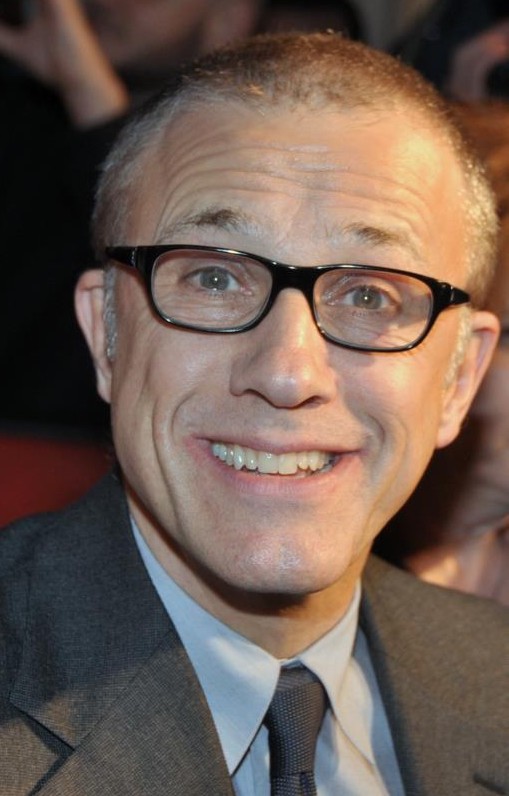
4. **The Pivotal Role: SS-Standartenführer Hans Landa in *Inglourious Basterds***: The trajectory of Christoph Waltz’s career underwent a seismic shift with his portrayal of SS-Standartenführer Hans Landa, famously known as “The Jew Hunter,” in Quentin Tarantino’s 2009 film “Inglourious Basterds.” This role proved to be the pivotal moment, a revelation of Waltz’s extraordinary talents to a global audience. Tarantino himself had expressed profound despair in finding an actor capable of bringing Landa to life, fearing he “might have written a part that was un-playable” until he encountered Waltz, who, in turn, credited Tarantino for rekindling his own love for acting.
Landa was conceived as a character of chilling complexity: “Clever, courteous, multilingual—but also self-serving, implacable and murderous.” Waltz’s masterful embodiment of these contradictory traits, delivered with an almost aristocratic charm that masked profound cruelty, rendered Landa instantly iconic. His ability to seamlessly switch between languages—German, English, French, and Italian—and to project an unsettling intellectual superiority made the character terrifyingly charming and utterly unforgettable.
Despite Brad Pitt having the leading role in the anti-Nazi revenge story, it was Waltz’s multifaceted performance that unequivocally “caught the attention of audiences and critics alike.” His portrayal was a veritable “tour de force,” showcasing an unmatched precision in dialogue, physical presence, and psychological depth. This nuanced performance not only anchored a significant portion of the film but also elevated its narrative tension and thematic resonance.
Quentin Tarantino himself acknowledged the indispensable nature of Waltz’s contribution, stating, “I think that Landa is one of the best characters I’ve ever written and ever will write, and Christoph played it to a tee. It’s true that if I couldn’t have found someone as good as Christoph I might not have made Inglourious Basterds.” This testament from the film’s visionary director underscores the profound impact Waltz had on the entire production, cementing his performance as a cornerstone of modern cinema.
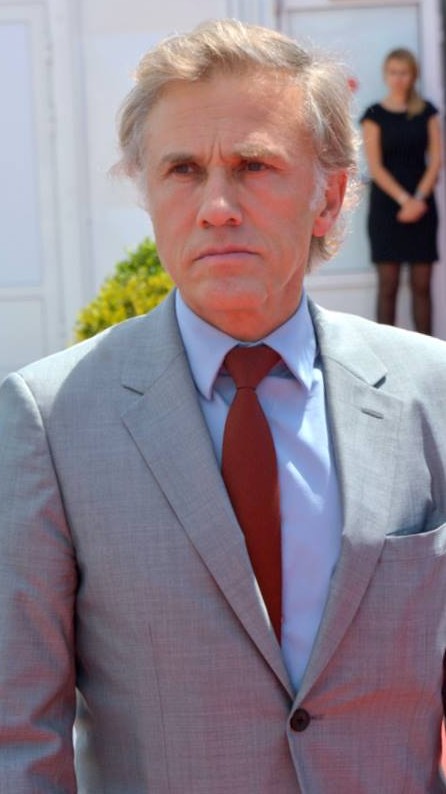
5. **Sweeping Critical Acclaim and First Academy Award**: The immediate aftermath of “Inglourious Basterds’” release saw Christoph Waltz embark on an unprecedented sweep of critical awards circuits, a testament to the profound impact of his portrayal of Hans Landa. His performance garnered widespread acclaim from both critics and the public, marking him as a formidable new talent on the international stage. The recognition began swiftly, signaling a dramatic shift in his professional standing.
Waltz’s initial major accolade arrived with the Best Actor Award at the prestigious 2009 Cannes Film Festival, an early indicator of the global resonance of his work. This honor was soon followed by a cascade of Best Supporting Actor awards from influential critics’ groups across the United States, including the New York Film Critics Circle, the Boston Society of Film Critics, and the Los Angeles Film Critics Association. These early wins established a clear momentum, positioning him as a leading contender in the upcoming awards season.
The acclaim continued to build, with Waltz securing significant victories at two of Hollywood’s most prominent precursors to the Academy Awards. He received the Best Supporting Actor award at the Golden Globes, an event celebrated for its wide-ranging industry recognition. This was quickly followed by another triumph at the Screen Actors Guild Awards, where he was honored by his peers for his outstanding performance, further solidifying his frontrunner status.
Culminating this remarkable awards season, Waltz achieved the highest honors in the industry. He won the BAFTA for Best Supporting Actor, presented by the British Academy of Film and Television Arts, a respected international award. This led to his ultimate triumph: the Academy Award for Best Supporting Actor at the 82nd Academy Awards, confirming his status as an international star and forever etching his name into the annals of cinematic excellence.
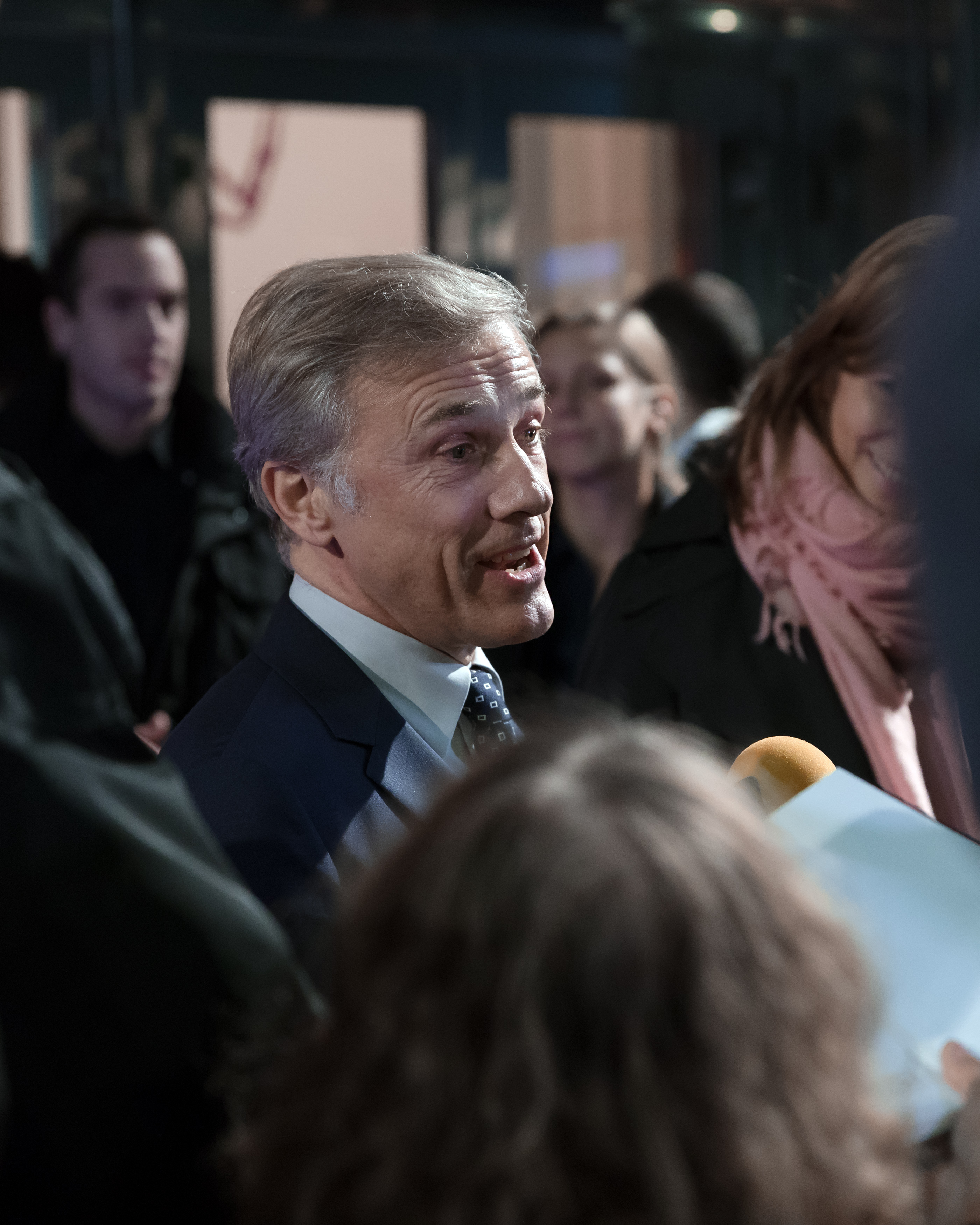
6. **Transition to Hollywood: *The Green Hornet*, *Water for Elephants*, and *Carnage***: Following his monumental success with “Inglourious Basterds,” Christoph Waltz’s career seamlessly transitioned into the realm of mainstream Hollywood productions. The “breakout role” of Hans Landa opened doors to a diverse array of projects, allowing him to demonstrate his versatility across various genres and directorial visions. This period marked a significant expansion of his artistic landscape, as he embraced new challenges in American cinema.
In 2011, Waltz appeared in several notable films, showcasing his ability to inhabit vastly different character types. One such role was that of the gangster Benjamin Chudnofsky in “The Green Hornet.” This performance allowed him to explore a more overtly comedic and flamboyant villainous persona, highlighting his range beyond the chilling precision of Landa and proving his appeal in large-scale action comedies.
That same year, Waltz also starred in “Water for Elephants,” a romantic drama set against the backdrop of a Depression-era circus. In this film, he took on the role of August Rosenbluth, the volatile and abusive ringmaster. This character, again a figure of authority and menace, allowed Waltz to deliver a performance rich in psychological complexity, further cementing his reputation for playing compelling antagonists with depth and nuance.
Rounding out his busy 2011, Waltz also featured in Roman Polanski’s “Carnage,” a dark comedy based on the play “God of Carnage.” In this ensemble piece, he portrayed Alan Cowan, a sophisticated and cynical lawyer, whose composure slowly unravels during a tense encounter between two sets of parents. The film provided another platform for Waltz’s sharp wit and ability to convey intense emotion within a contained, dialogue-driven narrative, further solidifying his impressive range in post-Oscar Hollywood.
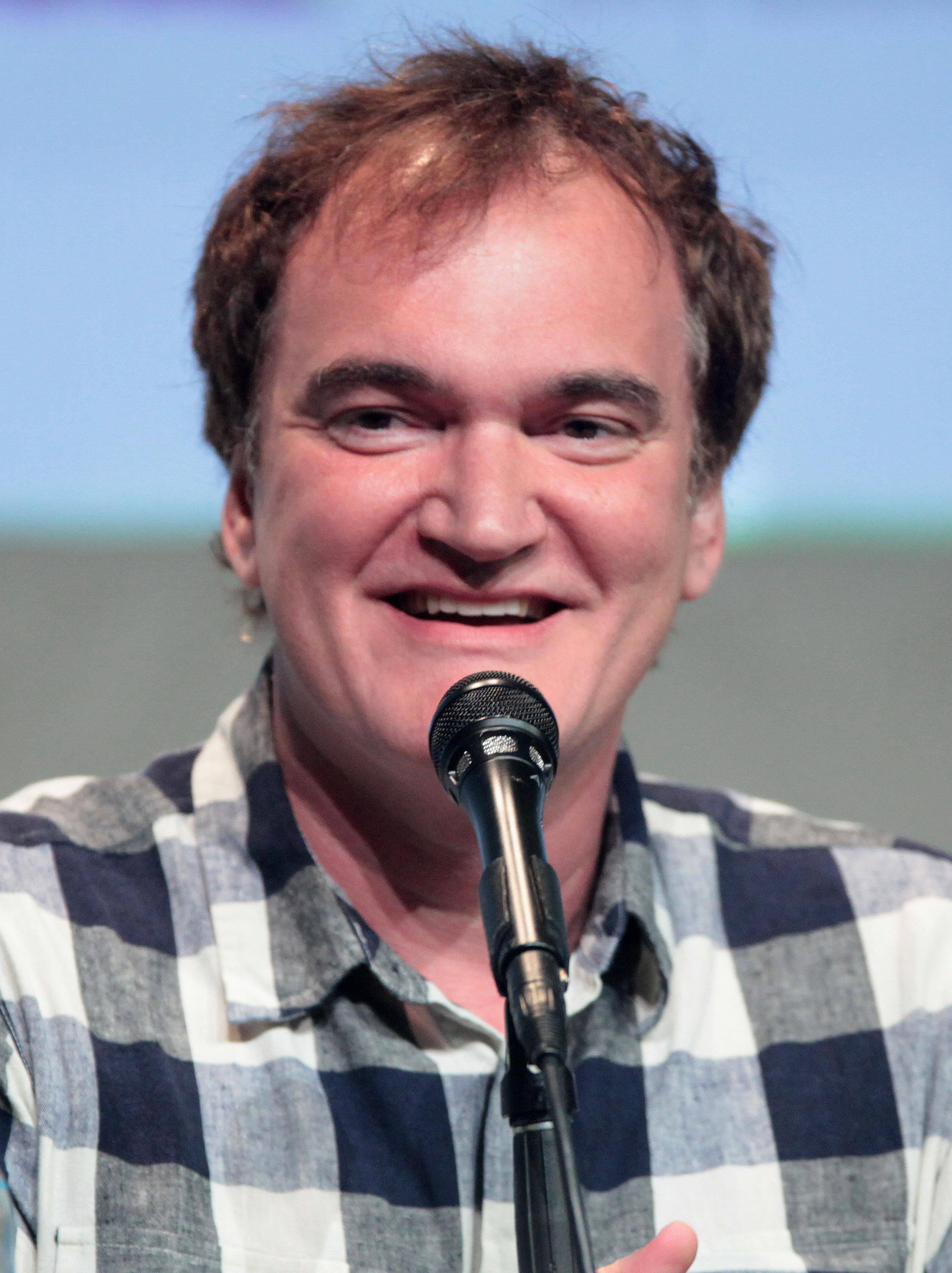
7. **A Second Collaboration with Tarantino: King Schultz in *Django Unchained***: Christoph Waltz’s collaboration with Quentin Tarantino proved so creatively fertile that it led to a second, equally impactful partnership in 2012 with “Django Unchained.” This time, Tarantino explicitly “wrote [the] role specifically for Waltz,” a testament to their shared artistic synergy and the director’s belief in Waltz’s unique abilities. The film, a revenge fantasy set in the antebellum American South, offered Waltz another complex and memorable character to portray.
Waltz flawlessly inhabited the role of Dr. King Schultz, an erudite German dentist who has reinvented himself as a bounty hunter in the American West. Schultz is a figure of intriguing contradictions—a man of refined intellect and moral principles operating within a brutal, lawless environment. Waltz’s portrayal made Schultz “complex, troubling, and delightful,” capturing the character’s struggle with the moral ambiguities of his profession and his eventual commitment to justice.
During the production, Waltz faced a minor setback when he “injured his pelvis” during a training accident prior to filming. However, demonstrating his resilience and dedication to his craft, the injury “did not impact his role in the film.” This incident, though challenging, did not deter him from delivering a performance that would once again garner widespread critical adoration and significant industry recognition.
Indeed, this second Tarantino collaboration “proved just as incendiary as the first,” cementing their creative partnership as one of contemporary cinema’s most successful. Waltz’s performance as King Schultz was celebrated for its charm, intelligence, and underlying humanity, leading to a new wave of acclaim and further cementing his stature as a premier actor capable of elevating any material with his distinctive touch.
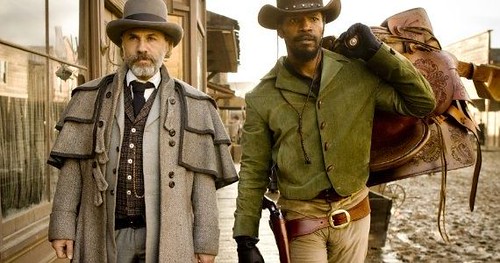
8. **Second Academy Award for *Django Unchained***: The final sentences of the previous section established Christoph Waltz’s second impactful collaboration with Quentin Tarantino for the 2012 film “Django Unchained,” a role explicitly tailored for him. His portrayal of Dr. King Schultz, the erudite German dentist turned bounty hunter, was met with immediate and profound critical adoration, cementing the creative synergy between actor and director as truly exceptional. This performance built upon the groundwork laid by “Inglourious Basterds,” proving his initial success was no mere anomaly.
The resounding acclaim for his work as King Schultz quickly translated into a remarkable sweep of prestigious industry honors, echoing his previous triumph. Waltz secured the Best Supporting Actor award at the Golden Globes, an important precursor in the awards season, demonstrating widespread approval from the Hollywood Foreign Press Association. This was swiftly followed by another victory at the British Academy Film Awards (BAFTA), affirming his international recognition.
The culmination of this extraordinary period arrived with his second Academy Award for Best Supporting Actor, presented at the 85th annual ceremony. This unparalleled achievement marked Waltz as one of the few actors to win two Oscars in supporting categories within a relatively short span, solidifying his status as a masterful and consistently brilliant performer. It was a powerful testament to his unique ability to imbue complex characters with both charm and gravitas, captivating audiences and critics alike.

9. **Engagements as a Festival Jury Member**: Beyond his electrifying performances on screen, Christoph Waltz has also been recognized for his discerning artistic sensibilities through prestigious invitations to serve on the juries of major international film festivals. These roles underscored his respected standing within the global cinematic community, valuing his expertise and perspective on contemporary filmmaking. Such appointments signify a deeper engagement with the art form, moving beyond individual performance to the evaluation and celebration of diverse cinematic works.
In April 2013, just a year after his second Oscar win, Waltz was selected as a distinguished member of the main competition jury at the illustrious 2013 Cannes Film Festival. This highly sought-after position places him at the heart of cinematic excellence, tasked with evaluating groundbreaking new films from around the world. His presence on such a revered panel reflected the industry’s profound respect for his artistic judgment and critical eye.
His involvement with leading film festivals continued into 2014 when he was again chosen as a member of the jury, this time for the 64th Berlin International Film Festival. Participating in these significant events not only highlighted his continued relevance and influence but also demonstrated his commitment to fostering global cinema. These engagements offered him a unique vantage point, further enriching his multifaceted artistic career as both a creator and an arbiter of cinematic quality.
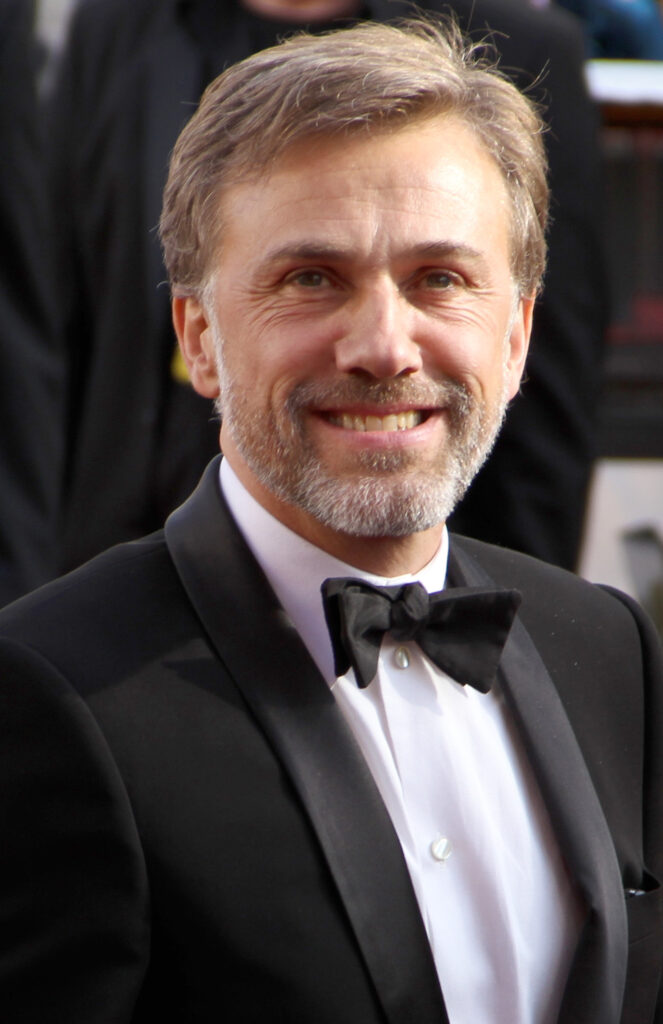
10. **Ventures into Opera Direction**: Demonstrating an artistic curiosity that extends well beyond the confines of film acting, Christoph Waltz has also ventured into the challenging and intricate world of opera direction. This foray into live classical performance underscored his profound engagement with the performing arts, harking back to his early career on European stages and his initial directorial debut in television. It revealed a deeper ambition to shape and interpret narratives through a distinct artistic medium.
In late 2013, Waltz took on the ambitious task of directing a production of Richard Strauss’s comedic opera, “Der Rosenkavalier,” at the Vlaamse Opera in Antwerp. The production continued into early 2014 with performances in Ghent, showcasing his meticulous approach to theatrical storytelling. This project allowed him to explore the dynamics of musical drama, translating his understanding of character and narrative into the grand scale of operatic presentation.
His commitment to opera direction was further evidenced by his return to the Vlaamse Opera in late 2017 to helm a production of Giuseppe Verdi’s “Falstaff.” This engagement, which also extended into early 2018 in Ghent, reaffirmed his passion for the genre. These directorial endeavors provided him with a unique avenue for creative expression, solidifying his reputation not merely as a gifted actor, but as a comprehensive artist with a deep appreciation for diverse forms of storytelling.
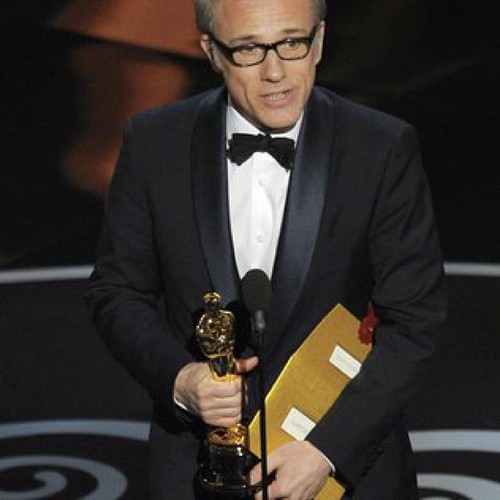
11. **Diverse Roles and Genre Exploration**: Following his dual Academy Award success, Christoph Waltz continued to cultivate an impressively diverse filmography, embracing roles that spanned a wide spectrum of genres and challenged his versatility. This period illustrated his deliberate avoidance of typecasting, instead seeking out characters that offered new avenues for his distinctive acting style. Each selection further burnished his reputation as an actor of profound depth and remarkable range, capable of captivating audiences in vastly different cinematic landscapes.
In 2014, he delivered a compelling performance as Walter Keane in Tim Burton’s biographical drama “Big Eyes,” a film that delved into the true story of the artist Margaret Keane and the deception surrounding her famous paintings. Waltz’s portrayal of the manipulative husband, who falsely claimed credit for his wife’s work, allowed him to inhabit another complex, morally ambiguous character with his characteristic blend of charm and underlying menace. The film premiered on Christmas Day, further establishing his presence in prestige releases.
Further showcasing his adaptability, Waltz embraced a more adventurous role in 2016, portraying the lead villain, Captain Leon Rom, in “The Legend of Tarzan.” As a corrupt Belgian captain, his performance injected a chilling presence into the action-adventure narrative, proving his ability to elevate even fantastical storylines with his intense characterizations. This role demonstrated his appeal in large-scale productions, contributing significantly to their dramatic tension.
The year 2017 saw Waltz appear in two distinct films: “Tulip Fever,” a historical drama, and “Downsizing,” a satirical science fiction comedy directed by Alexander Payne. In “Downsizing,” he notably played a flamboyant neighbor, a character that allowed him to explore a more overtly comedic and eccentric persona, further diversifying his repertoire. These engagements highlighted his continuous pursuit of challenging and varied artistic projects, preventing any stagnation in his remarkable career.
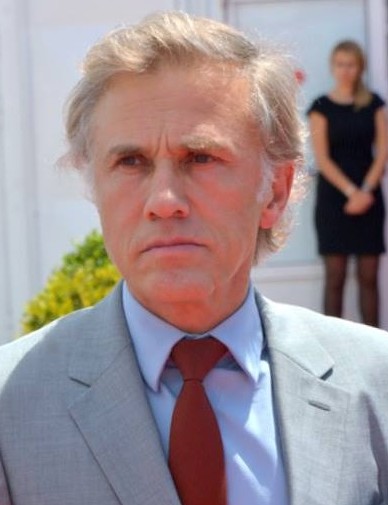
12. **Continued Artistic Exploration and Critical Recognition**: Christoph Waltz’s career, marked by sustained artistic exploration, continued to thrive with a series of diverse and often challenging roles in subsequent years. He consistently demonstrated a willingness to engage with a broad spectrum of storytelling, from elaborate action fantasies to more grounded dramatic thrillers. This commitment to variety ensured his continuous evolution as an actor, preventing predictability in his choices.
In 2019, Waltz appeared in the action fantasy “Alita: Battle Angel,” a technologically ambitious production that saw him navigating a world of advanced visual effects. This role allowed him to showcase his versatility within a blockbuster framework, proving his capacity to be a compelling presence in visually driven narratives. His ability to anchor such a film with a nuanced performance highlighted his enduring appeal across different cinematic scales.
A particularly intriguing project emerged in 2018 when Waltz agreed to play the leading role in a film adaptation of the novel “The Nazi and the Barber.” He described the main role, that of mass murderer Max Schulz, as a “juicy role,” a candid remark that speaks volumes about his attraction to complex and morally ambiguous characters. This choice underscored his consistent desire to delve into challenging psychological terrains, always seeking depth in his portrayals.

13. **Sustained Presence and Legacy Recognition**: Christoph Waltz continues to be a vibrant and influential presence in the entertainment industry, with a sustained output of high-profile projects that solidify his multifaceted artistic legacy. His ongoing work underscores a career defined by consistent excellence, strategic role choices, and an unwavering commitment to his craft, ensuring his enduring relevance in popular culture and critical discourse.
In 2023, he starred in the Amazon Prime series “The Consultant,” a role that further demonstrated his seamless transition into premium streaming content. This project showcased his ability to bring his unique blend of intensity and subtle humor to episodic television, capturing new audiences and reinforcing his versatility across platforms. His choice of projects reflects a keen awareness of where compelling storytelling resides in the modern media landscape.
The enduring impact of his career was powerfully acknowledged on October 17, 2024, when Christoph Waltz received an esteemed Icon award at the Newport Beach Film Festival. This prestigious honor celebrated his profound contributions to cinema and television over decades, recognizing him as a truly singular talent. Such an accolade speaks volumes about the respect and admiration he has earned from peers and critics alike, marking him as a figure of significant cultural importance.
Coinciding with this notable recognition, the Newport Beach Film Festival itself opened with the premiere of the film “Old Guy,” starring Waltz. This dual event served as a potent symbol of his ongoing vitality in the industry, proving that even as his legacy is celebrated, he continues to create new and exciting work. From his early European stage days to his current status as an international icon, Christoph Waltz’s journey remains a compelling narrative of artistic dedication and unparalleled success.
From the disciplined stages of Vienna to the global spotlight of Hollywood, Christoph Waltz has carved a truly indelible legacy, proving himself to be an artist of profound depth and unparalleled versatility. His journey, marked by perseverance and a relentless pursuit of creative excellence, has redefined the trajectory of a late-career breakthrough, transforming him into an actor capable of elevating any role, whether in a blockbuster, an art-house drama, or an opera production. Waltz’s consistent ability to captivate, challenge, and surprise audiences ensures that his contributions to cinema and the broader arts will continue to resonate for generations to come, standing as a testament to the power of authentic talent.

